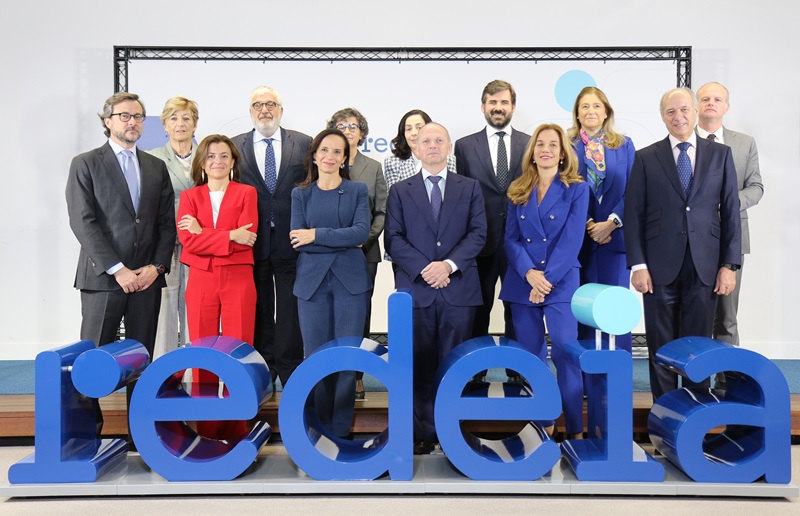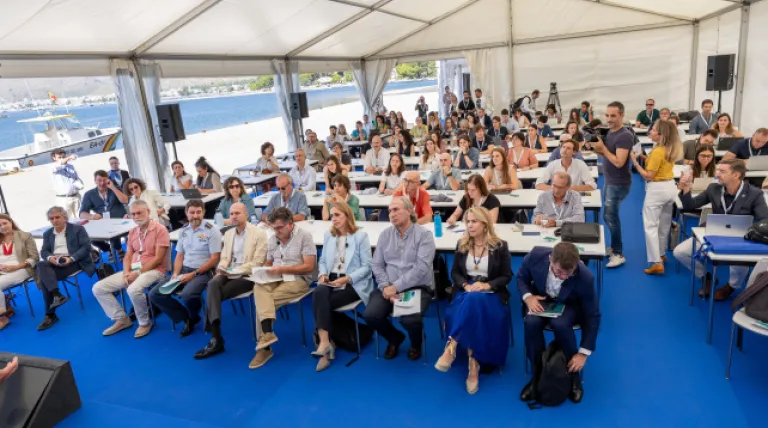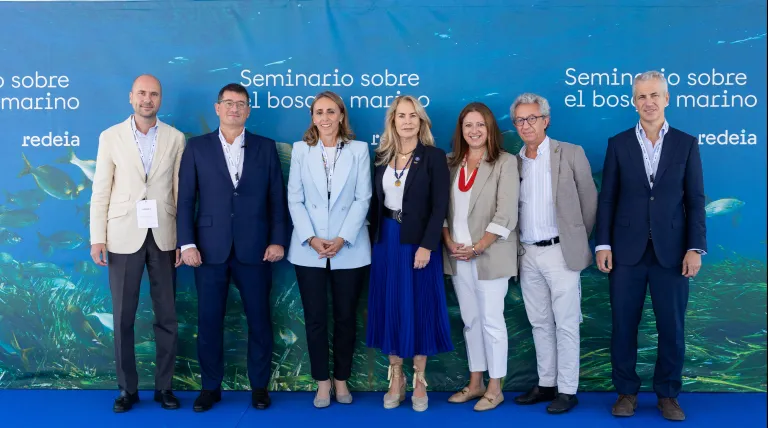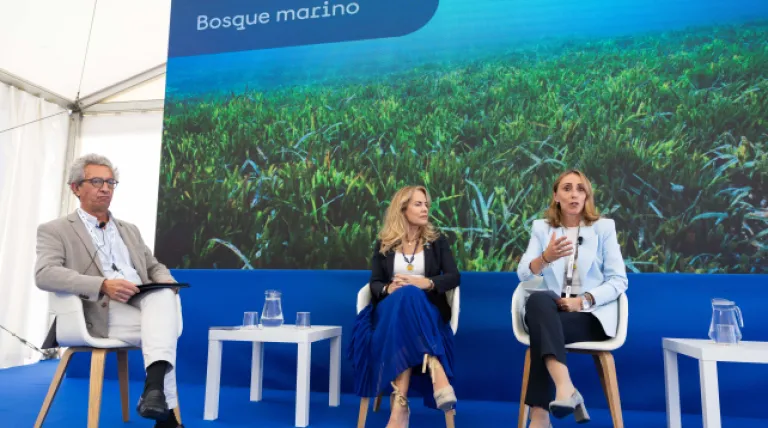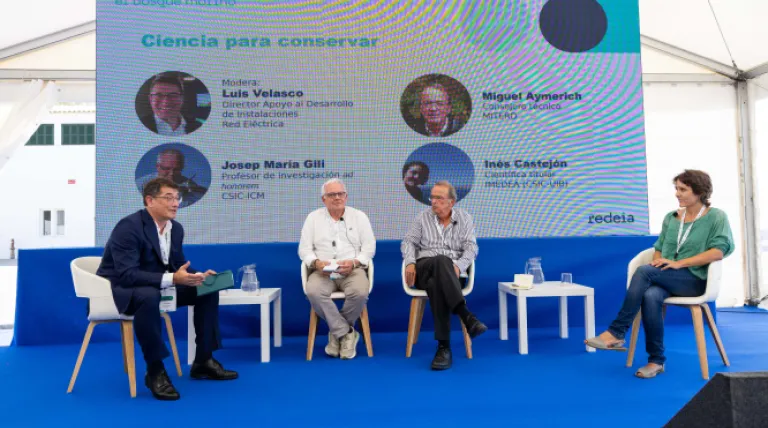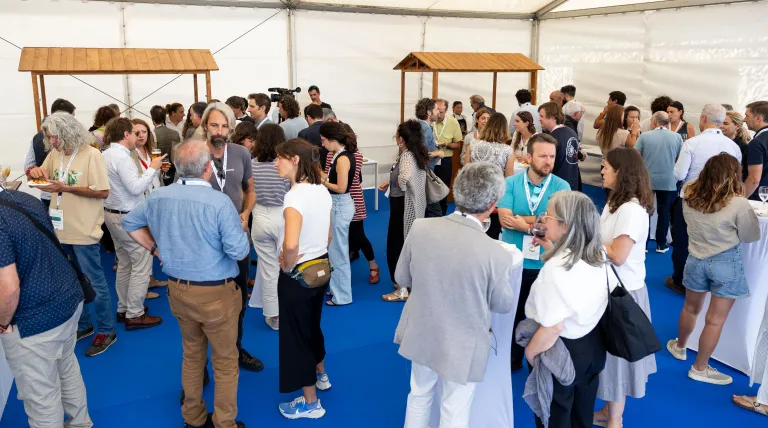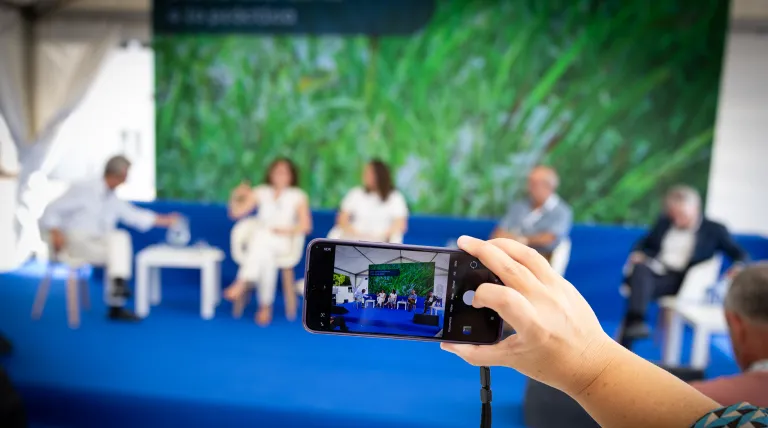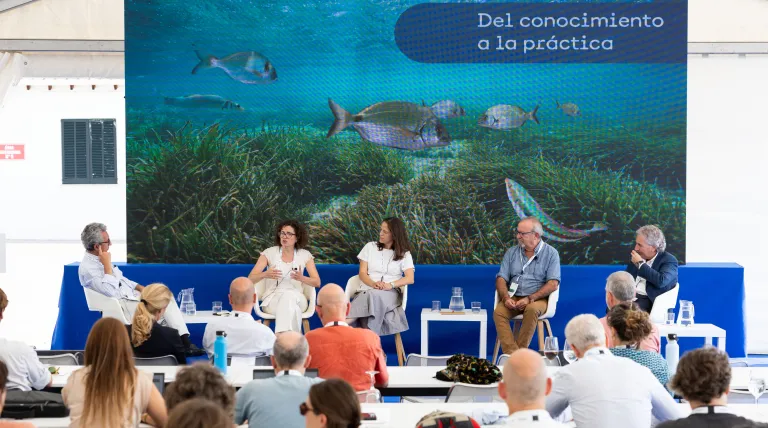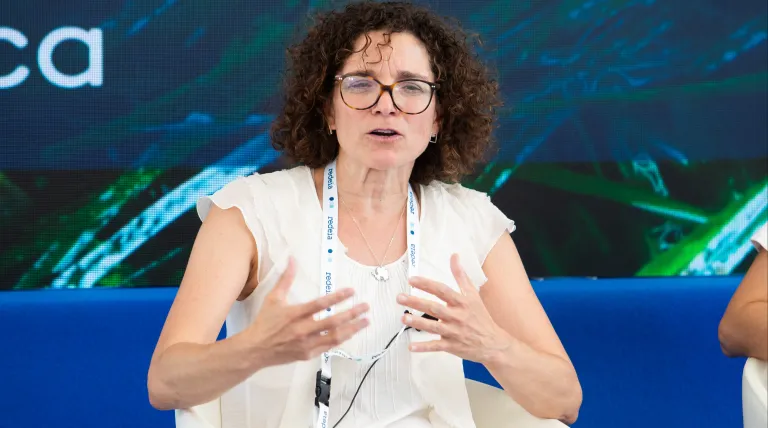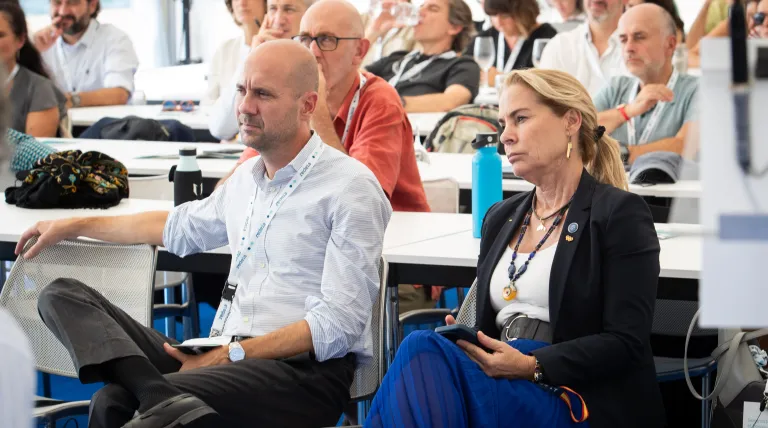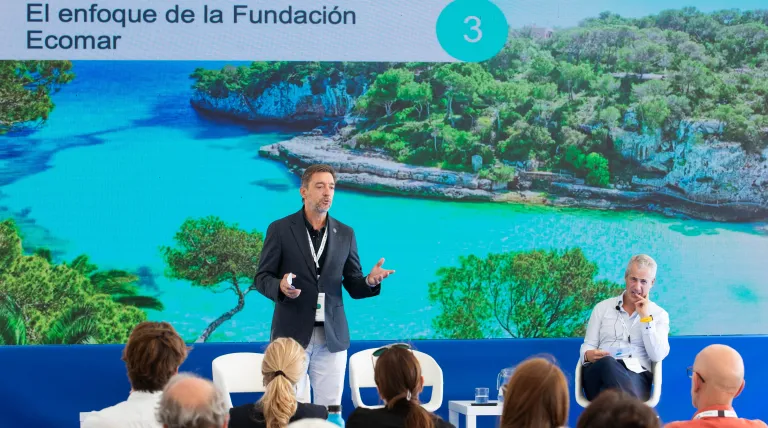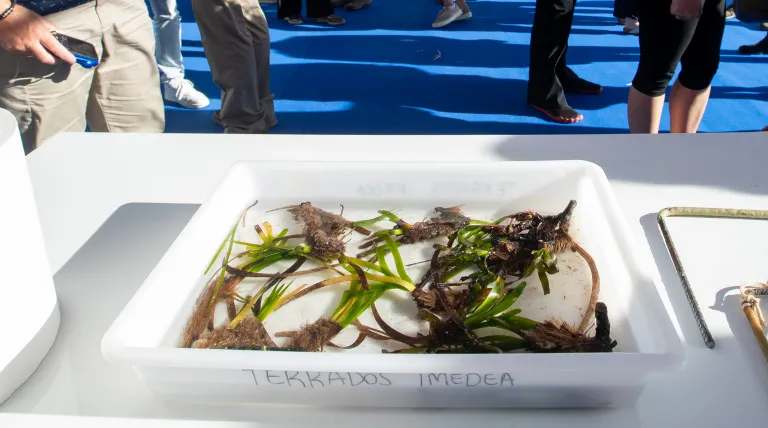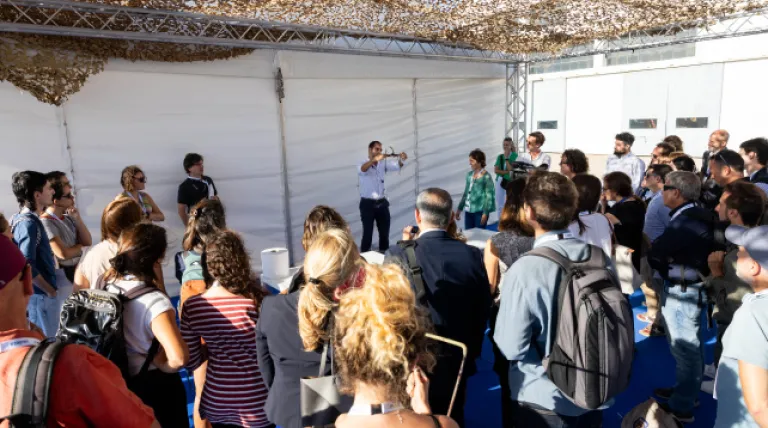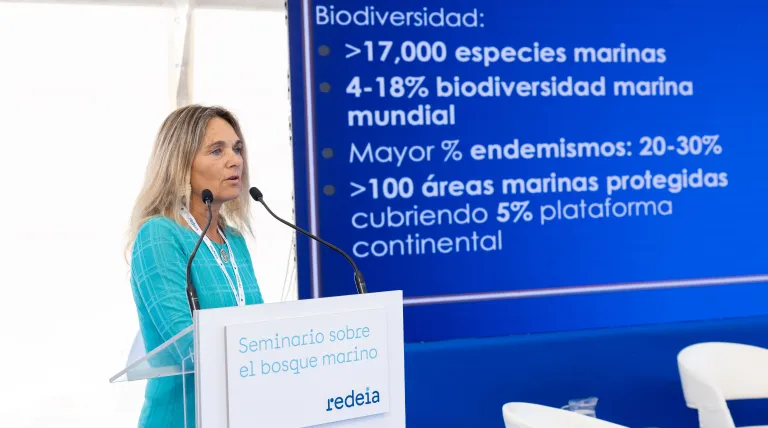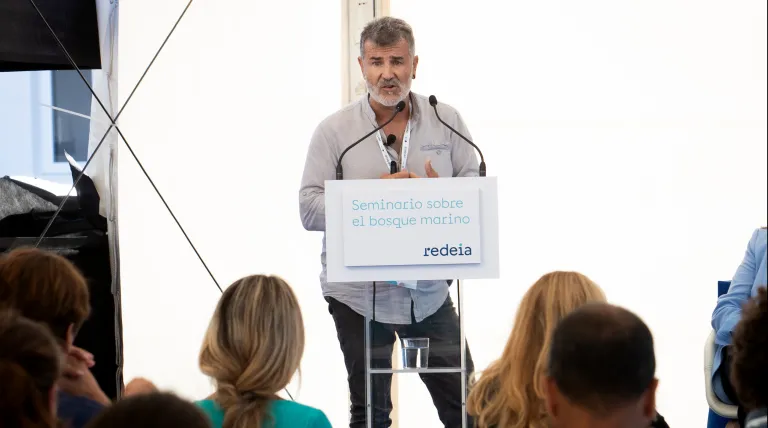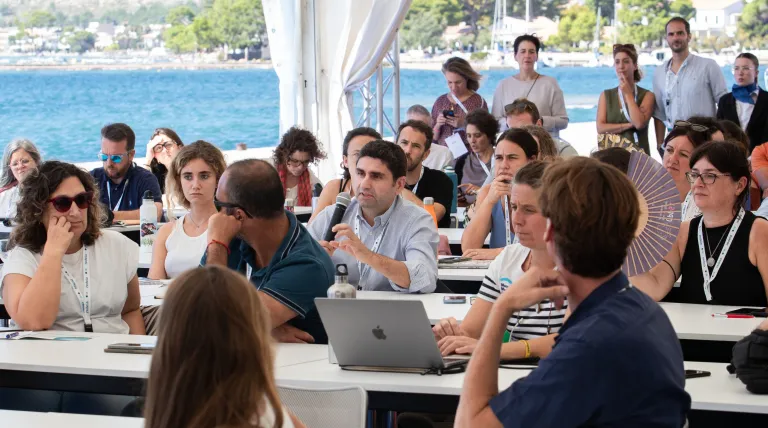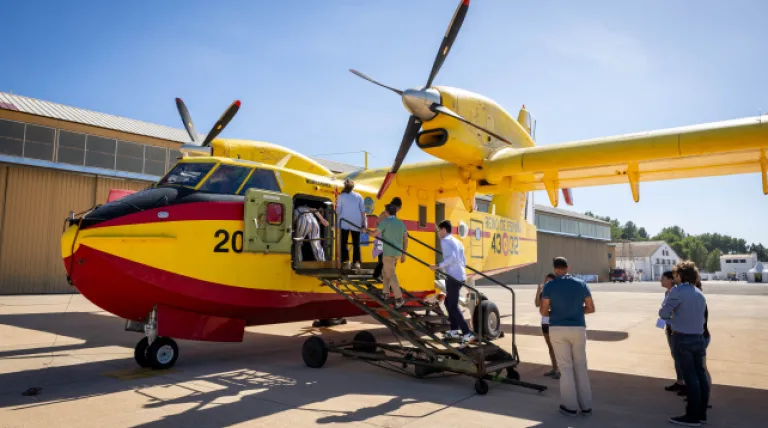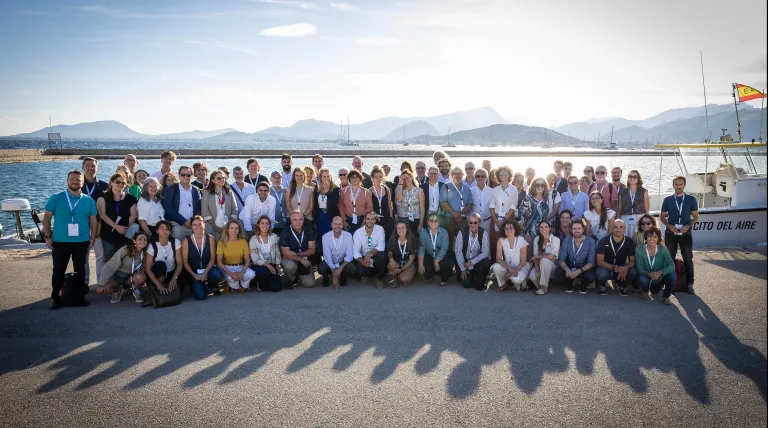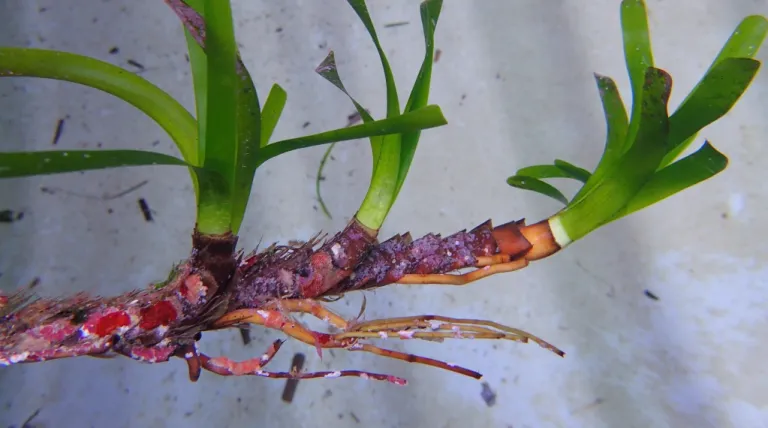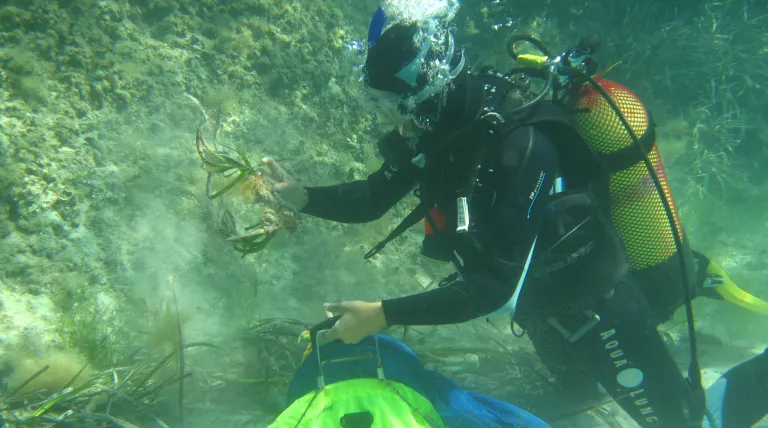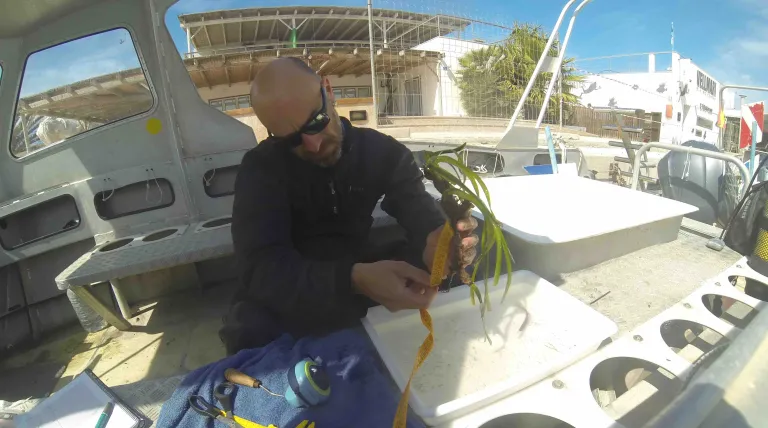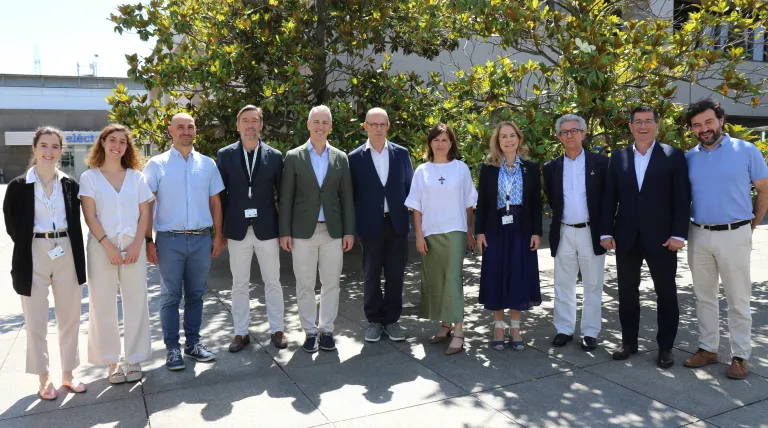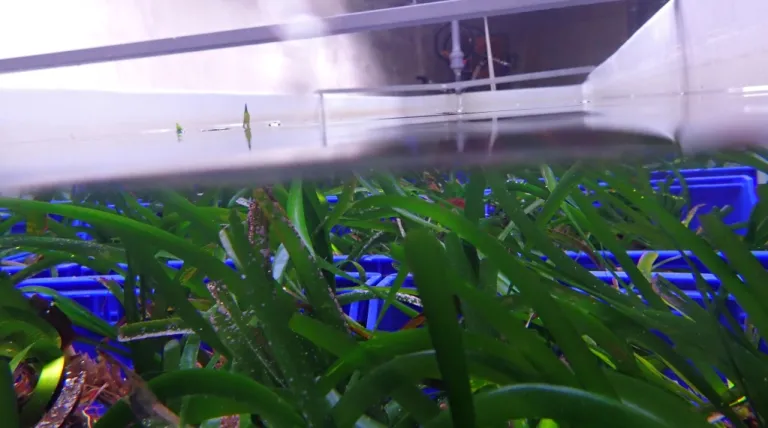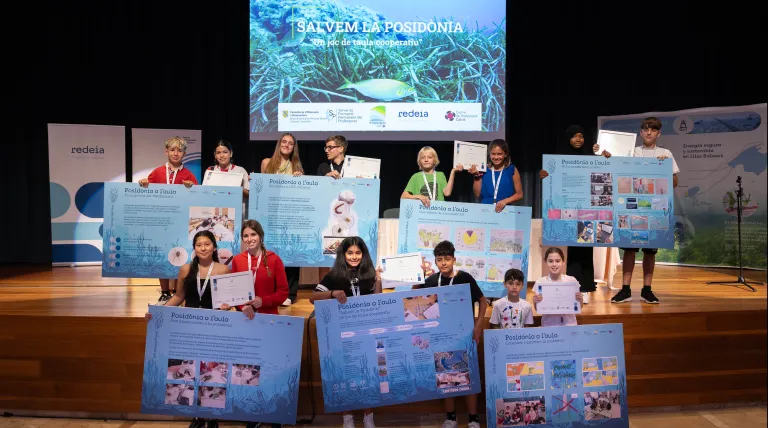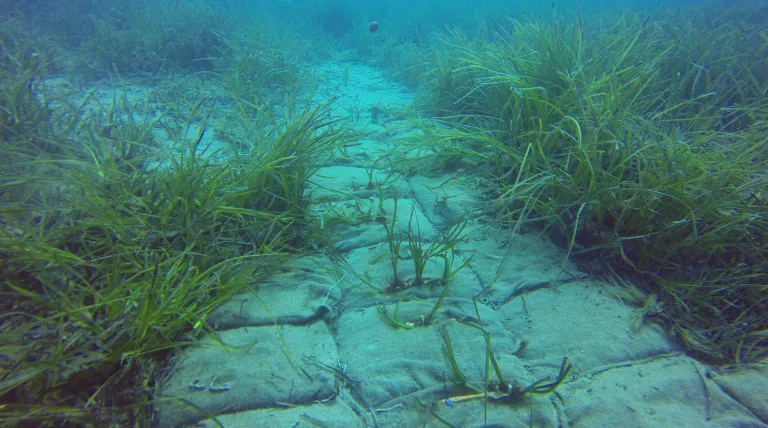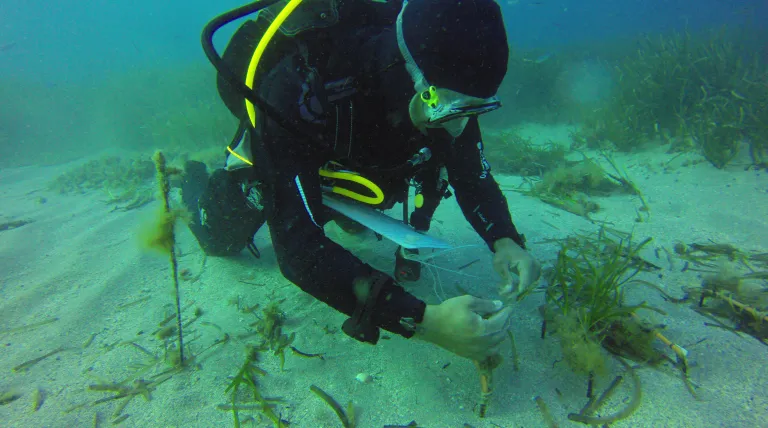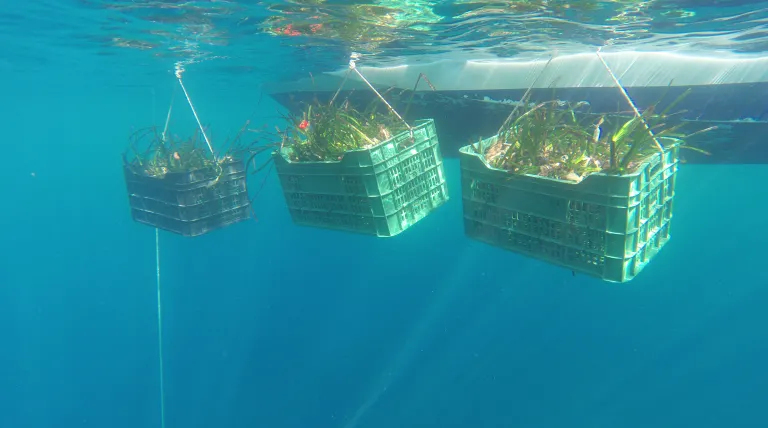We are a global operator of essential infrastructure
Marine forest, a strategic project of Redeia
Our first experience was the restoration of 2 hectares of posidonia oceanica in Mallorca in 2018. Following the launch of the Marine Forest platform in 2024, Redeia is driving both passive and active restoration projects in the Mediterranean and is working to expand its positive impact to other marine species and habitats.
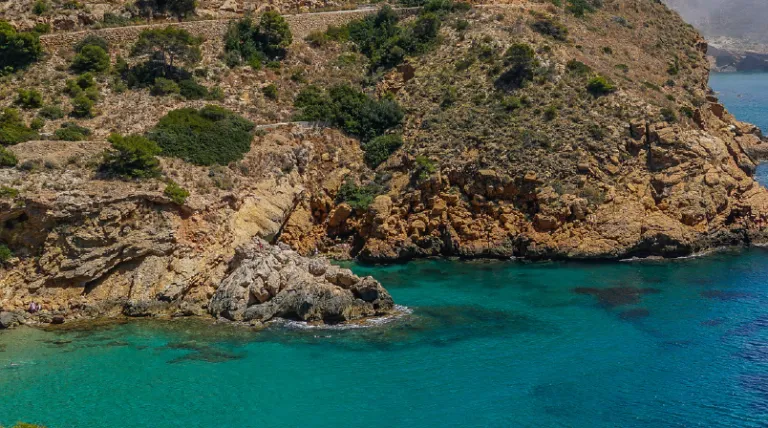
On 1 and 2 October, the Oceanogràfic in Valencia will host the 2nd Marine Forest Scientific Seminar, where the platform will present the progress made over the past year. Experts will analyse the challenges facing marine ecosystems and share the best science-based solutions and proposals to improve ocean health.
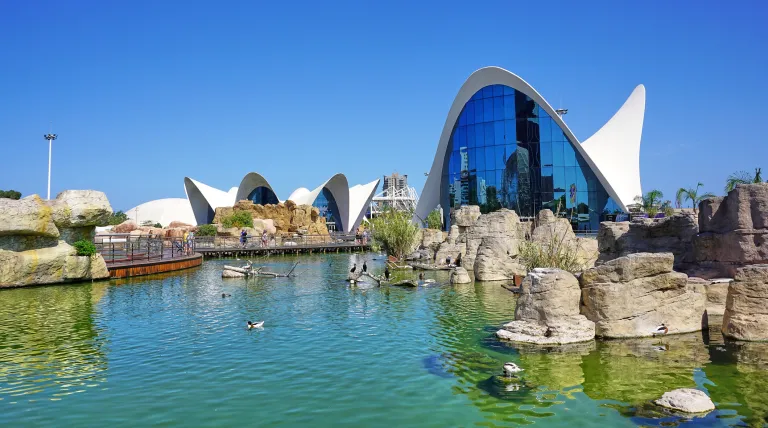
On 25 and 26 September 2024, at the military airfield in the Bay of Pollença, Mallorca, Redeia introduced the Marine Forest platform during a Scientific Seminar where around one hundred experts discussed the main threats facing marine ecosystems and proposed potential solutions. The event was attended by institutions, public administrations, companies, the scientific community, NGOs, and marine conservation foundations.
The Marine Forest platform was born from Redeia and Ecomar's combined efforts and experience for the preservation of marine ecosystems. Now, they share this knowledge with society and the scientific community, but most importantly, with marine ecosystems.
Through Red Eléctrica, Redeia has a successful track record in the restoration of Posidonia oceanica in the Balearic Islands. The construction of the submarine electricity interconnection between Talamanca (Ibiza) and the bay of Santa Ponsa (Mallorca), along with our commitment to deploy the infrastructure with minimal impact on the Posidonia oceanica seagrass, led the company to develop a research, conservation, and environmental education project in 2014. This initiative has resulted in a valuable methodology for seagrass collection and planting, leading to the recovery of 2 hectares of seagrass meadows in the bay of Pollença (Mallorca).
After 25 years of caring for our seas and oceans, the Ecomar Foundation is now leading an initiative to advance and assess techniques for the collection, cultivation, and experimental replanting of Posidonia oceanica in new areas for the recovery of seagrass meadows. The project is co-financed by the European Maritime and Fisheries Fund through the Pleamar Programme and will result in the collection of at least 18,000 seeds, seedlings, and fragments. It will also involve the restoration of approximately 3 hectares of Posidonia in the Mediterranean basin. The fishing industry and citizens will actively participate in the project.
The Mediterranean Institute for Advanced Studies is a joint research centre between the Spanish National Research Council (CSIC) and the University of the Balearic Islands (UIB). Its mission is to transfer scientific knowledge to society—particularly on marine, coastal, and island ecosystems—and to deepen our understanding of the environmental processes that shape the planet. The institute brings together the expertise of specialists from various disciplines to foster a collaborative research environment. In its search for solutions to environmental challenges, IMEDEA-CSIC, in collaboration with Redeia, developed a scientific method for replanting posidonia that has achieved a success rate of over 90%.











